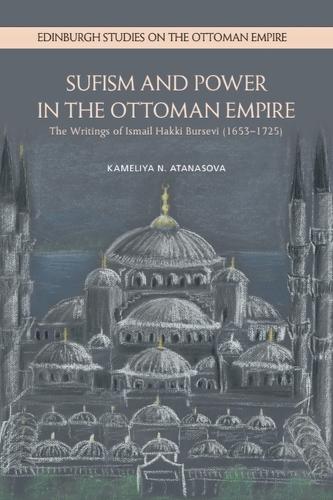
Sufism and Power in the Ottoman Empire: The Writings of Ismail Hakki Bursevi (16531725)
(Hardback)
Publishing Details
Sufism and Power in the Ottoman Empire: The Writings of Ismail Hakki Bursevi (16531725)
By (Author) Kameliya N. Atanasova
Edinburgh University Press
Edinburgh University Press
9th September 2025
United Kingdom
Classifications
General
Non Fiction
Islamic groups: Sufis
General and world history
297.40956109032
Physical Properties
Hardback
192
Width 156mm, Height 234mm
Description
This book contributes to the growing scholarship on the political dimensions of Ottoman Sufi thought and practice by examining the intersections of self-representation and religious authority in the writings of Ismail Hakki Bursevi (1653-1725), a prolific Sufi master, well-known Qur'an exegete, and advisor to Ottoman officials. The book highlights the political aspirations of this prominent early-modern Sufi through a focus on Bursevi's self-portraits as one of the most important religious figures of his age. By paying attention to the individual, communal, and institutional aspects of his authority construction, the book sheds light on how intellectuals like Bursevi navigated an increasingly competitive market of religious ideas in the Ottoman late seventeenth and early eighteenth century. More broadly, Sufism and Power challenges the notion that Sufi authority is necessarily charismatic and argues that the social context in which Bursevi lived points to alternative theorizations of religious authority as a discourse.
Author Bio
Kameliya Atanasova is an Assistant Professor of Religion and History at Washington & Lee University (Lexington, VA). She holds a Ph.D. in Religious Studies from the University of Pennsylvania. She has conducted archival research in the US, Germany, and Turkey which has been sponsored by the Mellon Foundation, DAAD (German Academic Exchange Service) and The Manuscript Society.
